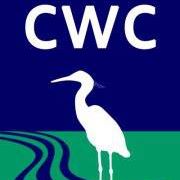Kim JN, Kim B-S, Kim S-J, Cerniglia CE. 2012. Effects of Crude Oil, Dispersant, and Oil-Dispersant Mixtures on Human Fecal Microbiota in an In Vitro Culture System. mBio 3(5):e00376-12. Find it Online*
The BP oil spill caused the closing of commercial and recreational fishing from May 2010 to April 2011. A study was developed to compare the impact of chemically dispersed and non-dispersed oil on the human body. Dispersed oil caused the most change among the intestinal bacterial community. Certain bacterial species increased while others decreased, impacting the specific roles of each within the human body. Oil dispersed chemically was more water soluble which increased the surface area of hydrophobic (i.e., water repellent) and toxic compounds for microbial activity. Increased solubility of dispersed oil allows polycyclic aromatic hydrocarbons (PAHs) to enter fish as well. The shift in the intestinal bacterial community included a higher density of Escherichia coli; a change in microflora could open the gateway for additional pathogens.
Rabalais NN. 2011. Twelfth Annual Roger Revelle Commemorative Lecture: Troubled waters of the Gulf of Mexico. Oceanography 24(2):200-211. Find it Online*
In spring 2010, the BP Deepwater Horizon incident gushed an estimated 206 million gallons of oil and gas into the Gulf of Mexico. This massive volume of released oil will increase the potential for large scale impacts within the ecosystems found in the Gulf of Mexico and along those coastal states. From microbes to humans, a countless number of lives will be affected physically, biologically, and physiologically.
McCrea-Strub A, Kleisner K, Sumaila UR, Swartz W, Watson R, Zeller D, Pauly D. 2011. Potential Impact of the Deepwater Horizon Oil Spill on Commercial Fisheries in the Gulf of Mexico. Fisheries 36(7):332-336. Find it Online*
The Gulf of Mexico is a region that is valued for the lucrative and highly productive fisheries found within it. This region is home to over 100 species of fish, crustaceans, molluscs, and other invertebrates; the major sources of fisheries-associated revenue come from Gulf menhaden, Eastern oysters, brown shrimp, white shrimp, and blue crab. After the BP oil spill in April 2010, a federal and state ban was placed on commercial fishing and harvesting to ensure safety and short-term assessment of the implications. An initial estimate reports a minimum annual loss of $247 million. Invertebrate fisheries may be most at risk because the sessile, benthic organisms are constantly exposed to oil-saturated habitats compared to more mobile fish species. Species may be directly impacted by physical contact and indirectly impacted by affecting trophic interactions and fouling nursery/spawning areas.

